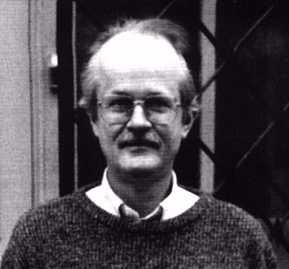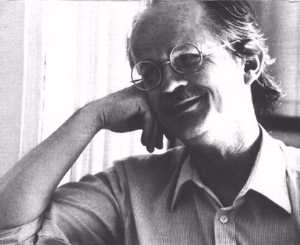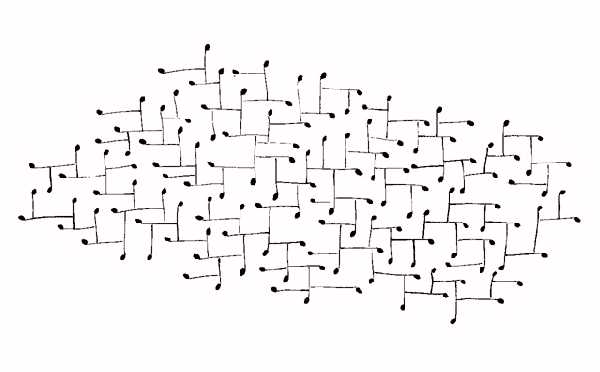Composer Profiles
Tom Johnson
 Tom Johnson
Tom Johnson
Photo by Anna Mortley
Tom Johnson
 for RealAudio comments by the composer, [not yet available].
for RealAudio comments by the composer, [not yet available].
 for MPEG-2 version of Euler Harmonies, 0:42/251K.
for MPEG-2 version of Euler Harmonies, 0:42/251K.
 for MPEG-2 version of Abundant Numbers, 2:10/761K.
for MPEG-2 version of Abundant Numbers, 2:10/761K.
 for MPEG-2 version of Rational Melodies, No. 1, 1:33/729K.
for MPEG-2 version of Rational Melodies, No. 1, 1:33/729K.
 for MPEG-2 version of Rational Melodies, No. 16, 0:57/669K.
for MPEG-2 version of Rational Melodies, No. 16, 0:57/669K.
 for RealAudio 3 stereo version of Failing: A Very Difficult Piece for String Bass, 8:57.
for RealAudio 3 stereo version of Failing: A Very Difficult Piece for String Bass, 8:57.
 for RealAudio 3 mono version of Failing: A Very Difficult Piece for String Bass.
for RealAudio 3 mono version of Failing: A Very Difficult Piece for String Bass.
 for RealAudio 2 mono version of Failing: A Very Difficult Piece for String Bass.
for RealAudio 2 mono version of Failing: A Very Difficult Piece for String Bass.
 for an essay, The Voice of New Music: New York City 1972-1982. A collection of articles originally published in the Village Voice (MS Word format)
for an essay, The Voice of New Music: New York City 1972-1982. A collection of articles originally published in the Village Voice (MS Word format)
 for an essay, Narayana's Cows and Delayed Morphisms
for an essay, Narayana's Cows and Delayed Morphisms
 for an essay, Review of Self-Similar Melodies by Tom Johnson
for an essay, Review of Self-Similar Melodies by Tom Johnson
 for an essay, Automatic Music
for an essay, Automatic Music
 for an essay, Explaining my Music: Keywords
for an essay, Explaining my Music: Keywords
 for Tom Johnson's New (2000) Home Page
for Tom Johnson's New (2000) Home Page
 Tom Johnson, composer, performer and writer, is perhaps best known for his operas, particularly The Four Note Opera, which was premiered in New York City in 1972 and which has been produced over 60 times in at least nine different languages. Non-operatic works that have received particular attention over the years include his solo performance Nine Bells, the often played Failing: A Difficult piece for Solo String Bass, and theatrical pieces such as the Scene for Piano and Tape. From 1972 to 1982 Johnson was the new-music critic for the Village Voice. Johnson's weekly columns covered the emergence and development of minimal music in New York City. A large collection of his articles from theat period was published in 1989 by Apollohuis in Eindhoven, The Netherlands, under the title The Voice of New Music Though traveling frequently, his residence since 1983 has been in Paris. "The world is easier to understand," he says, "when viewed from about halfway between Moscow and Washington."
Tom Johnson, composer, performer and writer, is perhaps best known for his operas, particularly The Four Note Opera, which was premiered in New York City in 1972 and which has been produced over 60 times in at least nine different languages. Non-operatic works that have received particular attention over the years include his solo performance Nine Bells, the often played Failing: A Difficult piece for Solo String Bass, and theatrical pieces such as the Scene for Piano and Tape. From 1972 to 1982 Johnson was the new-music critic for the Village Voice. Johnson's weekly columns covered the emergence and development of minimal music in New York City. A large collection of his articles from theat period was published in 1989 by Apollohuis in Eindhoven, The Netherlands, under the title The Voice of New Music Though traveling frequently, his residence since 1983 has been in Paris. "The world is easier to understand," he says, "when viewed from about halfway between Moscow and Washington."
Photo by Lona Foote
Johnson was born in Colorado in 1939. He received his B. A. and Master of Music degrees from Yale University, and also studied with Morton Feldman. (Notes from Lovely Music, Ltd.)

A page from Tom Johnson's famous book (unfortunately out of print) Imaginary Music. No. 65, "Syncopated Texture"
Johnson Discography
- Music for 88, Experimental Intermedia XI 106, 1993
- Rational Melodies, on "Now Series," Eberhard Blum, flutes, Hat Hut ART CD 6133, 1993
- Failing: A Difficult piece for Solo String Bass, on "Live at Bang On A Can," Composers Recordings Inc. CRI CD 628, 1992
- An Hour for Piano, Frederic Rzewski, piano, Lovely Music, Ltd. LP 1081, 1979
Here is Tom Johnson's 1997 catalog. (See his home page for the current catalog.)
To reach the composer:
On-line: c/o Javier Ruiz, [email protected] or Tom Johnson [email protected]
By telephone:
By fax:
By physical mail: 75 rue de la Roquette F-75011 FRANCE


 Tom Johnson
Tom Johnson
 Tom Johnson, composer, performer and writer, is perhaps best known for his operas, particularly The Four Note Opera, which was premiered in New York City in 1972 and which has been produced over 60 times in at least nine different languages. Non-operatic works that have received particular attention over the years include his solo performance Nine Bells, the often played Failing: A Difficult piece for Solo String Bass, and theatrical pieces such as the Scene for Piano and Tape. From 1972 to 1982 Johnson was the new-music critic for the Village Voice. Johnson's weekly columns covered the emergence and development of minimal music in New York City. A large collection of his articles from theat period was published in 1989 by Apollohuis in Eindhoven, The Netherlands, under the title The Voice of New Music Though traveling frequently, his residence since 1983 has been in Paris. "The world is easier to understand," he says, "when viewed from about halfway between Moscow and Washington."
Tom Johnson, composer, performer and writer, is perhaps best known for his operas, particularly The Four Note Opera, which was premiered in New York City in 1972 and which has been produced over 60 times in at least nine different languages. Non-operatic works that have received particular attention over the years include his solo performance Nine Bells, the often played Failing: A Difficult piece for Solo String Bass, and theatrical pieces such as the Scene for Piano and Tape. From 1972 to 1982 Johnson was the new-music critic for the Village Voice. Johnson's weekly columns covered the emergence and development of minimal music in New York City. A large collection of his articles from theat period was published in 1989 by Apollohuis in Eindhoven, The Netherlands, under the title The Voice of New Music Though traveling frequently, his residence since 1983 has been in Paris. "The world is easier to understand," he says, "when viewed from about halfway between Moscow and Washington."